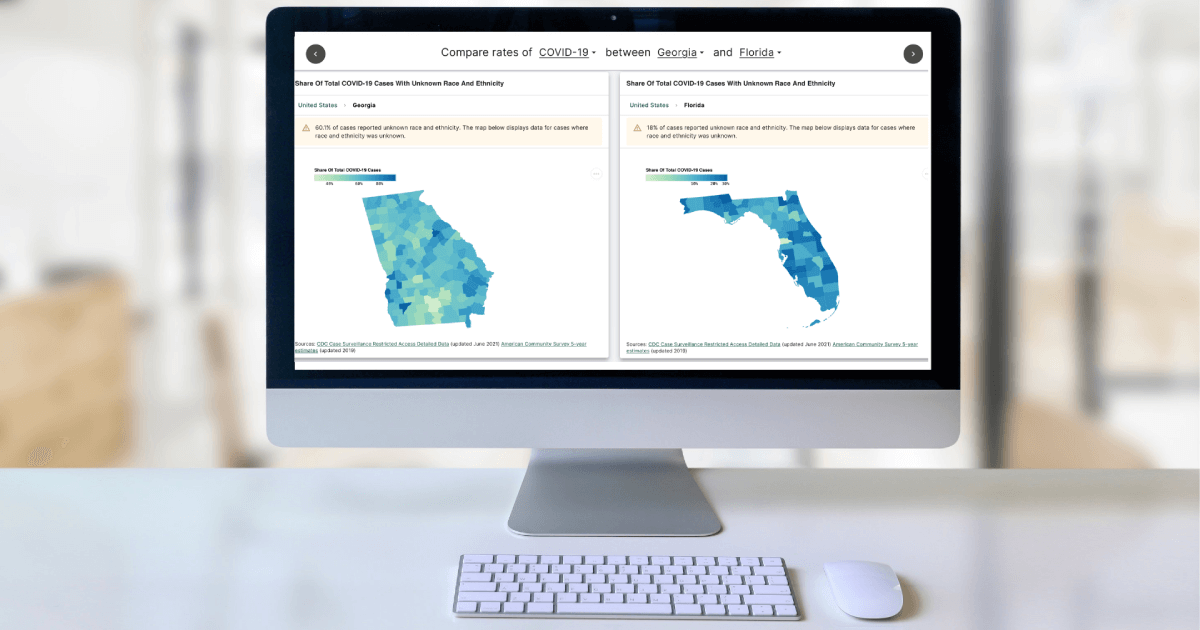Written By the Morehouse School of Medicine
The Satcher Health Leadership Institute (SHLI) at Morehouse School of Medicine (MSM) today expanded its Health Equity Tracker, launching a new module to track and identify cardiovascular medicine adherence gaps among Medicare beneficiaries. This new module is the first of its kind to depict publicly available medicine adherence data at the state level in a comprehensive interactive platform.
“Black, Native American, and Hispanic and Latino communities have the highest rates of cardiovascular illnesses nationwide, yet they disproportionately lack access to lifesaving medicines that can prevent these illnesses,” said Sandra Harris-Hooker, PhD, Senior Vice President for External Affairs and Innovation at Morehouse School of Medicine. “By illustrating racial and ethnic disparities in medicine adherence, the Health Equity Tracker ensures these gaps aren’t swept under the rug. This new data will help healthcare providers and policymakers identify solutions to address these disparities.”
Through the scalable medicine adherence module, users can now search for population-specific heart attack rates and post-heart attack beta-blocker treatment persistence. Adherence to antiretrovirals, statins, beta blockers, and RAS-Antagonists – medicines typically used to treat human immunodeficiency virus (HIV) and cardiovascular conditions like diabetes, hypertension, and heart disease – are also measured within the module. Interactive maps and data tables allow users to view race and ethnicity disparities over time and examine variations in medicine adherence across communities. Using this tool, stakeholders will be able to not only identify where medication disparities exist at the state and county levels, but also to visually layer the economic, social, and political barriers associated with these disparities.
“The Satcher Health Leadership Institute at Morehouse School of Medicine is very proud to be the first to launch a module of this kind to ensure medicine adherence gaps in underserved communities aren’t overlooked,” Dr. Harris-Hooker added. “It is our hope that this information will be a driving force towards improving equitable health outcomes nationwide.”
The new module expands the capabilities of the Morehouse School of Medicine Satcher Health Leadership Institute Health Equity Tracker. Launched in 2020, the tracker was created in response to critical gaps in health data that became evident during the COVID-19 pandemic.
The creation of the new module was supported by a multi-faceted grant from the Pharmaceutical Research and Manufacturers of America (PhRMA).
“PhRMA is committed to addressing the root causes of disparities and long-standing health inequities among US populations,” said Scott Woods, Vice President, Policy and Research at PhRMA. “Closing data gaps in medication adherence will allow us to build a deeper understanding of health inequities and ultimately create a more equitable healthcare system.”
About Satcher Health Leadership Institute
The Satcher Health Leadership Institute (SHLI) aims to be the leading transformational force for health equity in policy, leadership development and research. Rooted in the legacy of its founder, the 16th U.S. Surgeon General, Dr. David Satcher, SHLI’s mission is to create systemic change at the intersection of policy and equity by focusing on three priority areas: the political determinants of health, health system transformation, and mental and behavioral health. In conjunction with key strategic partners, SHLI enhances leadership among diverse learners, conducts forward-thinking research on the drivers of health inequities and advances evidence-based policies, all in an effort to contribute to the achievement of health equity for all population groups.





